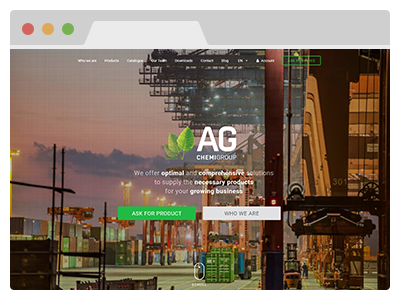Of all the buzzwords in business, few have been written about less than ‘Industry 4.0’. However, discussing this term with most chemical industry employees generally leads to five basic emotions. These are shock, denial, awe, pity, and hope.
Like the five stages of grief, these emotions should not be feared, but more accepted as a process to guide yourself through Chemical Industry 4.0.
The Shock: What on Earth is Industry 4.0?
My goodness! What is this? I must get up to date! A quick Google search….finds Oliver Scalabre, Senior Partner & Managing Director at industry consultant BCG, giving one of the better definitions, when he says, “What if existing manufacturing and large technological innovations came together to create the next big manufacturing reinvention? Bingo. This is the fourth manufacturing revolution, and it’s happening right now.”
It's happening right now! More panic.
A further Google search… finds a more comprehensive breakdown of the concept of Industry 4.0, by Thorsten Wenzel, Vice President and Global Head of Chemicals at SAP, who writes in the industry journal Digitalist, “Digital technology and the data it brings hold tremendous promise for the chemicals industry. These technologies can all play a role in driving business value.
- The Internet of Things (IoT), leveraging sensors to capture data from manufacturing, storage, and distribution
- The cloud, a platform to support a common system of record for both suppliers and customers
- Analytics, to correlate supply data to product quality and customer satisfaction
- Machine learning, to assist in predictive maintenance of operational equipment
- Blockchain, to better track transactions for assets, materials, and products
-
Which defines things slightly better but does little to remove the shock.
That is, until he adds that, “Technology alone isn’t the answer. In the chemicals industry, it’s the use of technology against the right digital strategy that holds the real value. This requires a focus on implementing a true digital core that enables a common system of record through the business. It also requires a corporate mindset that embraces agility, adaptability, and innovation. It requires a mindset that is driven by a customer-first, design thinking perspective.”
Really? Are you sure? Isn’t this just corporate management speak?
The Denial: Is this just Hype and Consultancy Babble?
Some would say yes. The respected, and published chemical process engineer, Sean Moran, has shared his doubts, when he questioned, “Is there really a fourth industrial revolution going on? If so, these four revolutions were powered by respectively: water (and later steam), electricity, digital technologies and hot air. #Industry4 #spin #meaninglessterm”
While this view may seem at odds with majority opinion, it was widely supported by online comments on LinkedIn from a broad spectrum of intelligent, well-educated chemical industry specialists and businessmen.
It is an understandable position to take. Very few people like change, so the news that everything will be different soon can be hard to accept. It can bring on a feeling of disbelief and denial.
Denial of change is common, but the change will still happen, and it will be awesome.
The Awe: Industry 4.0 is an Essential for the Future
Nothing will be the same after the Industry 4.0 revolution is completed. Use of the latest data technology will provide a more efficient and cost saving chemical production process. Supply chains will be streamlined, analytics will minimise raw material wastage, and less capital will be tied up in chemical feedstocks.
Chemical suppliers and producers who fail to utilize its potential will fade away as their higher costs will make them less and less competitive.
As chemical industry experts at business consultancy Elsevier, make clear, “The chemical manufacturing industry is currently undergoing a seismic shift. The question is no longer whether to adopt Industry 4.0 connectivity and ‘smart’ manufacturing technologies but when. By 2020, advanced implementation of Industry 4.0 will become necessary just to compete. It’s also likely to be seen by investors as a prerequisite for funding.”
This is a point highlighted by Dr Felix Hanisch, who as Head of Technology & Innovation at Covestro gave a keynote speech at OSIsoft, where he stated that, “The strategic answer to the challenges of ‘Chemicals 4.0’ is that players can thrive when they simultaneously master the supply chain of feedstock and resources, manufacturing efficiency (including intensification and digitalization), as well as customer-specific application value.”
Specifically, he refers to Covestro’s three staged approach to digitalization, which he outlines as, “In the shorter term, the company aims to ‘optimize supply’, innovating its day-to-day business by improving reliability and supply chain performance. In the midterm, Covestro wishes to leverage growth and innovate how customers do business with the company (using information and channels to improve customer experience). [While in the] Longer term, Covestro considers completely new, digitally enabled business models.”
Put simply, a chemical industry technology and innovation expert believes that Chemical Industry 4.0 will lead to completely new business models.
Given the size of this task, it is easier for chemical producers and suppliers to be awestruck. A completely new business model, a top-to-bottom reorganisation of the supply chain, and an overhaul of the ‘customer experience’.
No wonder that such a goal will induce feelings of pity; the next of the Five Emotions of Chemical Industry 4.0.
Follow this link to read the second part of this article.
To keep up-to-date with more chemical industry news, chemical product prices and specifications join the AG CHEMI GROUP Client Zone.
Client Zone Sign Up

Photo credit: BigInja, Siemens, ZDNet, ChemicalEdge